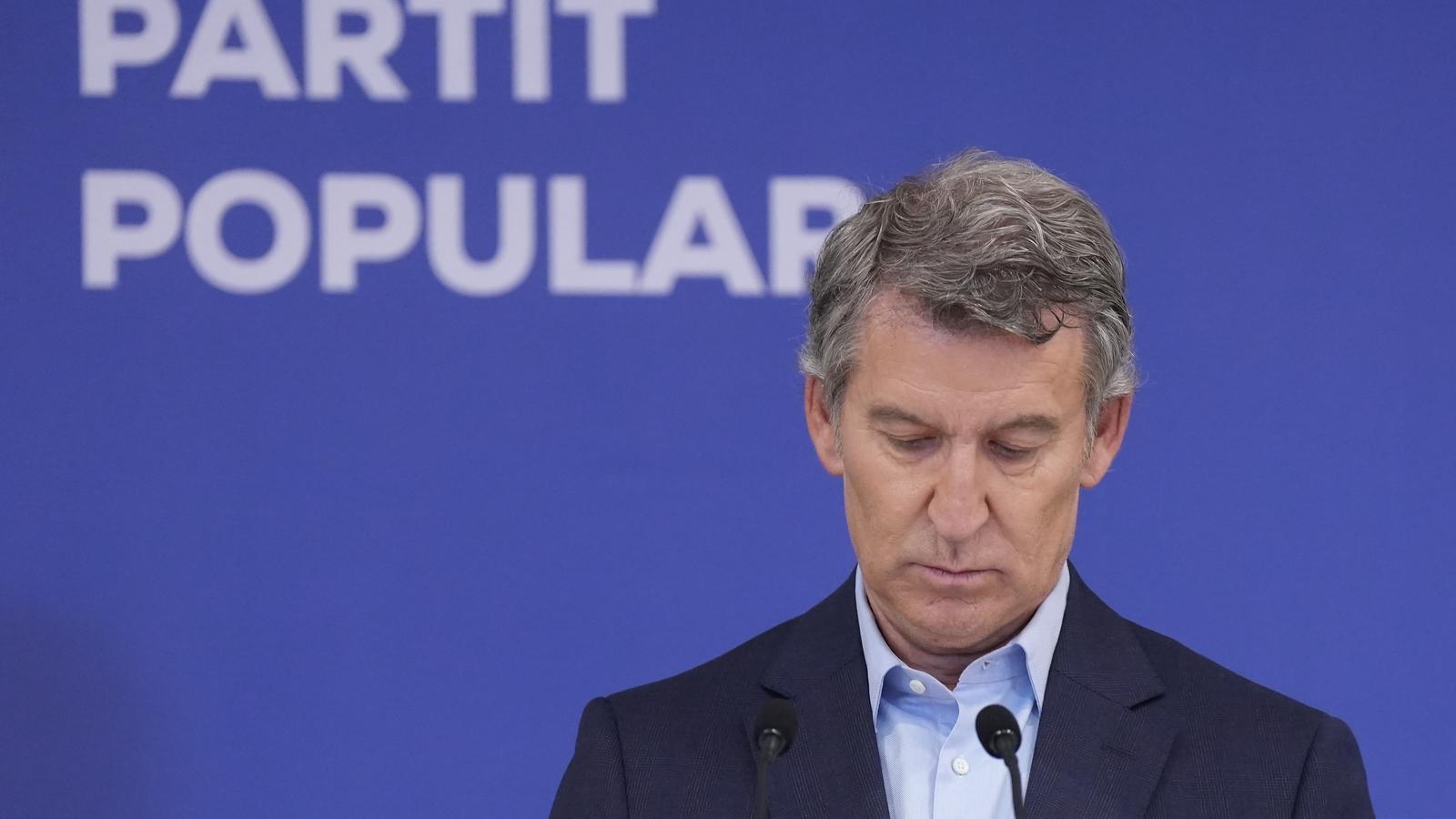Feijóo also defends expelling regular immigrants who commit crimes.
The Montoro case is shaken up by pointing out Sánchez's corruption "records" and raising the tone on immigration.


BarcelonaIn the midst of the storm of corruption by the Montoro case, the leader of the People's Party (PP), Alberto Núñez Feijóo, once again shrugged off responsibility this Wednesday, calling for an investigation that goes "to the end" and pointing to the "corruption record" of Spanish President Pedro Sánchez. But he didn't stop there and continued to raise the tone on immigration linked to insecurity, while polls are boosting Vox's popularity in Spain. like that of the CIS, with his forceful tone on this issue. In an interview on Cuatro, the Popular Party leader not only repeated what he had already said last week with a defense of the deportation of "illegal immigrants", but has opened the door to expelling legal immigrants who commit crimes. All of this, under an umbrella that rejects "populism" and "do-goodism." "When the immigrant is irregular, they will be expelled immediately; when the immigrant is legal, it depends on the crime they commit; they may be expelled immediately or, on the contrary, they will have to be tried and the appropriate sentence sought," he asserted, if they have made it clear that it is necessary to reconsider. "Their place in the future" in the case of legal immigrants.
The verbalization of his position has not only occurred with the events in Torre Pacheco last week, in which he saw the opportunity to establish a profile and harden positions, but also now in the midst of the storm of alleged corruption by former minister Cristóbal. political presentation The PP's position at the last congress even goes further than the Galician politician is now saying, advocating "immediate repatriation of illegal immigrants and those who commit crimes." That is, all irregular and regular immigrants who commit crimes, without going into the details of which crime. He also reflects the opposition to mass regularizations, to the relationship "between registration and access of irregular immigrants to non-contributory economic benefits," and also opposed the idea that "irregularity" generates "rights."
He argues that Montoro left the office in 2008.
On the other hand, Feijóo reiterated his support for the Montoro case and encouraged an investigation into the former minister's scheme: "If there's any evidence, let it be investigated to the end," he stated. In any case, he said that Pedro Sánchez is breaking "corruption records." Among other things, he mentioned that "he has a problem in his family, in his party, and in his government," due to the judicial investigations into his brother and his wife, as well as the alleged corruption case affecting the last two PSOE organizational secretaries, José Luis Ábalos and Santos Cerdán, in addition to the case he also cited involving the Attorney General. One of the points the PP emphasized is that the Montoro case dates back a decade, while the Cerdán case affects the current government.
In any case, Feijóo has balanced the situation, as while he demanded a thorough investigation of the case "whoever fell," he also defended the presumption of innocence and recalled that the former minister left the consultancy firm under investigation, Equipo Económico, in 2008, despite the Mossos d'Es (Spanish Police) being involved. "We respect the judges and the media that publish them," he said, contrasting himself with the attitude he believes the Spanish president has had with cases affecting the PSOE (Spanish Socialist Workers' Party). What he has done is condemn the Spanish government, which he sees as "collapsed" in a "dead legislature," as he believes was evident this Tuesday in Congress when Sánchez lost the vote on the "anti-shutdown" decree.
PNV warning
After The parliamentary defeat of the state executive branch due to the rejection of the anti-blackout decree, the leader of the PNV, Aitor Esteban, commented this Wednesday on the weakness of the investiture majority and of the legislature in general. "We're betting on governability and the investiture, from very different positions. Not even some parties have shown any willingness to provide the government with a budget," he lamented.
